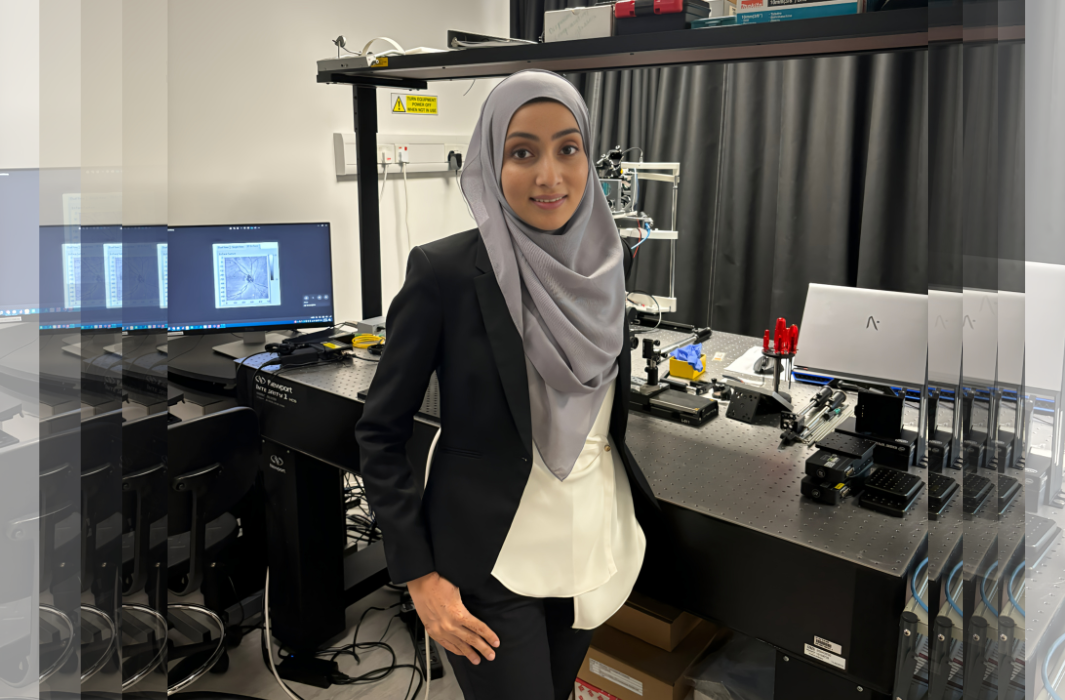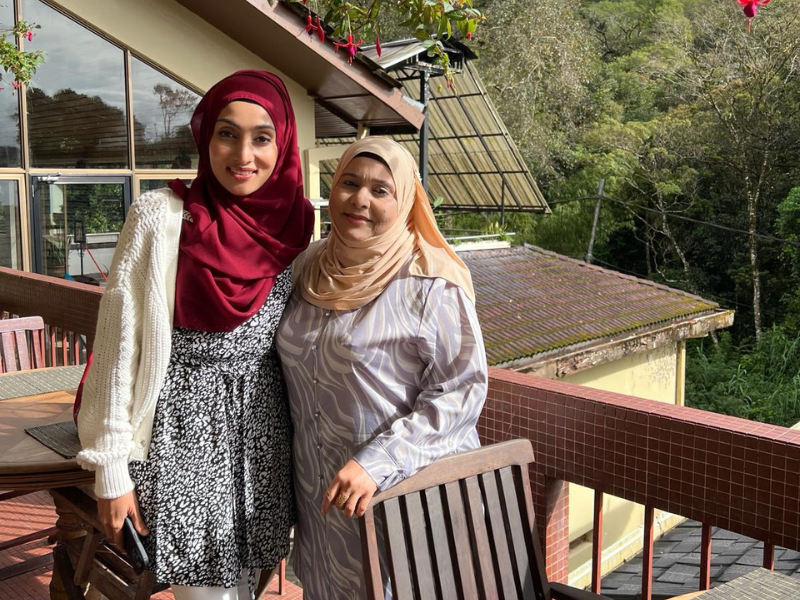By Keith Lim Jun Yi
Munirah Ismail — Research Fellow at the Singapore Eye Research Institute, Doctor of Philosophy in Biomedical Engineering, and NUS Master of Business Administration (MBA) student — is a shining role model for women looking to enter the male-dominated fields of engineering and entrepreneurship.
Since childhood, Munirah has always wanted to be an engineer.
She credits her female relative, who works as a civil engineer, as the catalyst for her biomedical engineering aspirations. Meeting a female engineer drove her to break the gendered notion that engineering was a male dominated profession. Munirah aimed to lead by example.
Her parents also served as important anchors in her life, encouraging her to accomplish more and not be limited by gender.
Munirah’s mother, for instance, taught her not to settle for less. “She wanted to be a teacher, and she was in the National Institute of Education (NIE). Then she got pregnant with my brother and had to give that up. So, her regret has always been that she had to give up her dream for her family. She did not want that for us,” said Munirah.
Her father and grandparents, too, served as key inspirational figures. Munirah’s grandparents travelled from India to Singapore to set up their spice business, which was later passed on to her father. For Munirah, her father’s perseverance and diligence as the family’s sole breadwinner motivated her to work hard as well.
Munirah went on to obtain a Bachelor’s degree in Biomedical Engineering, but wanting to learn more, she earned a PhD in Biomedical Engineering. Equipped with such knowledge, she proceeded to help people in the healthcare sector.
After graduation, Munirah worked as a Research Fellow at the Nanyang Technological University (NTU) to develop venous valves. She then worked as a Product Development Engineer at medical device firm NICE Surgical Solutions. Her current job at the Singapore Eye Research Institute involves revolutionising ophthalmic care through AI and robotics.
Mixing business and biomedical aspirations
Despite her qualifications, Munirah is continuing her studies as an MBA student.
This is due to her love for learning new things, but also because Munirah realised that she needed more business skills to achieve her dream of starting her own company.
For example, Munirah felt that she required better soft skills to interact with board members and stakeholders.
Hence, she decided to pursue an MBA to improve her communication skills in the business world, such as learning to better liaise with international stakeholders. Furthermore, doing an MBA has taught her about starting a company from scratch and being an entrepreneur who can make a difference in people’s lives.
“I want to build a startup with technology that is not out there yet that can help save or improve people’s lives,” said Munirah.
She believes that by bringing together business acumen and biomedical expertise — she can better lead a startup to help people in the healthcare realm.
Helping and empowering women
“My goal is never to get rich; it’s always to help others,” said Munirah.
Munirah volunteers at Jamiyah Singapore, an organisation that seeks to improve people’s lives through various services. Some examples include setting up halfway houses for addicts, running hospitals, and providing welfare assistance to the community.
As part of the Woman’s Committee at Jamiyah Singapore, she empowers women by helping to organise the Exemplary Mother Award, a platform to recognise and honour women who have made influential contributions to their families and society.
Furthermore, Munirah aims to improve the lives of less-privileged women by using her MBA skills to teach them how to scale up their small home businesses. As mentioned by Munirah, “I feel that education can go a long way. You’re not just helping one person — you can help the whole community.”
Besides, she hopes to bring more women into STEM.
“I want to encourage more women to take up STEM,” she said. “I would like to see more women in STEM and to build this community of women leaders.”
She added that although many women fear living a life torn between work and family — this is not always the case as alternative routes can always be found through persistence and hard work.
After all, Munirah herself is living proof of that.




